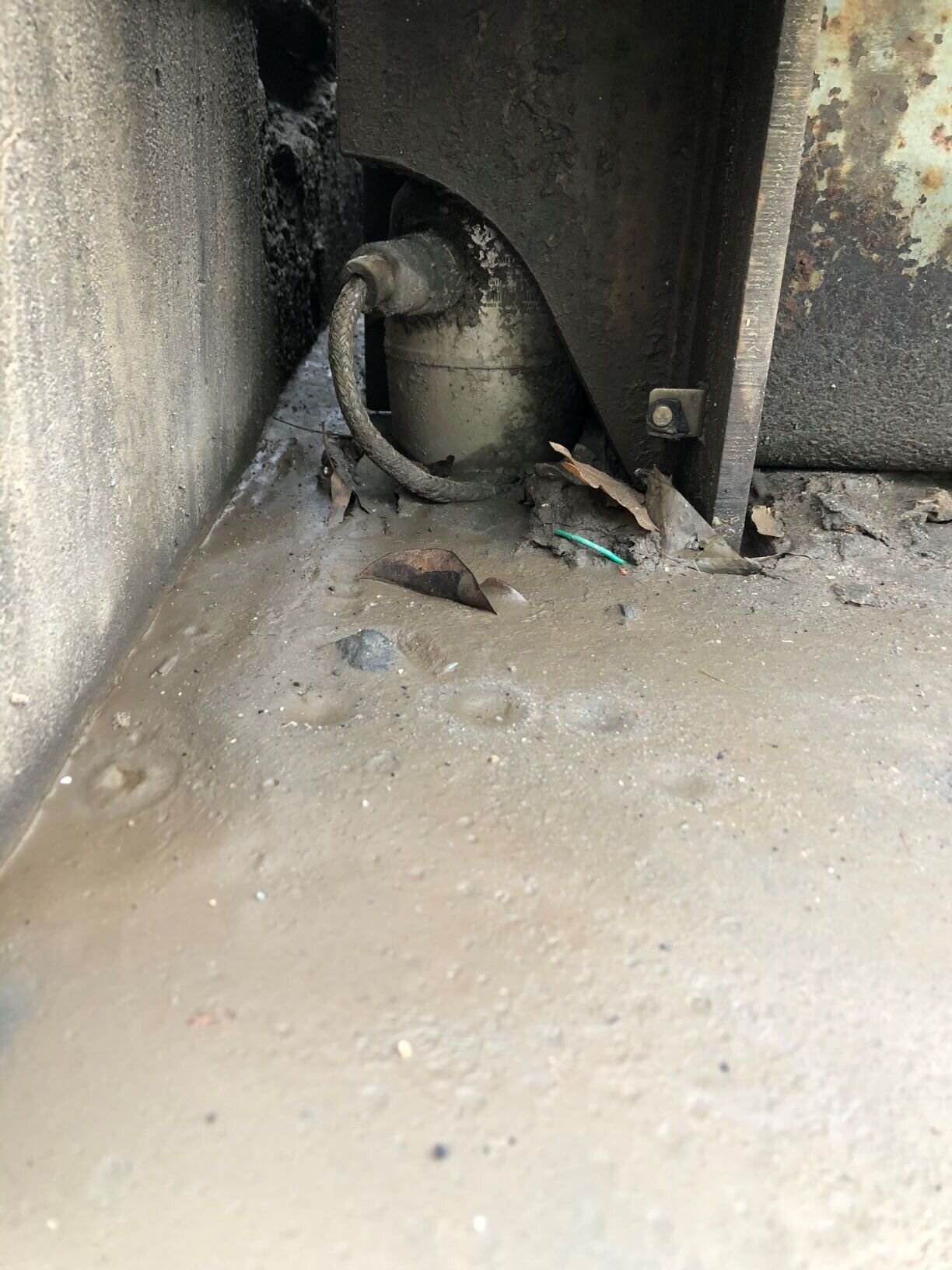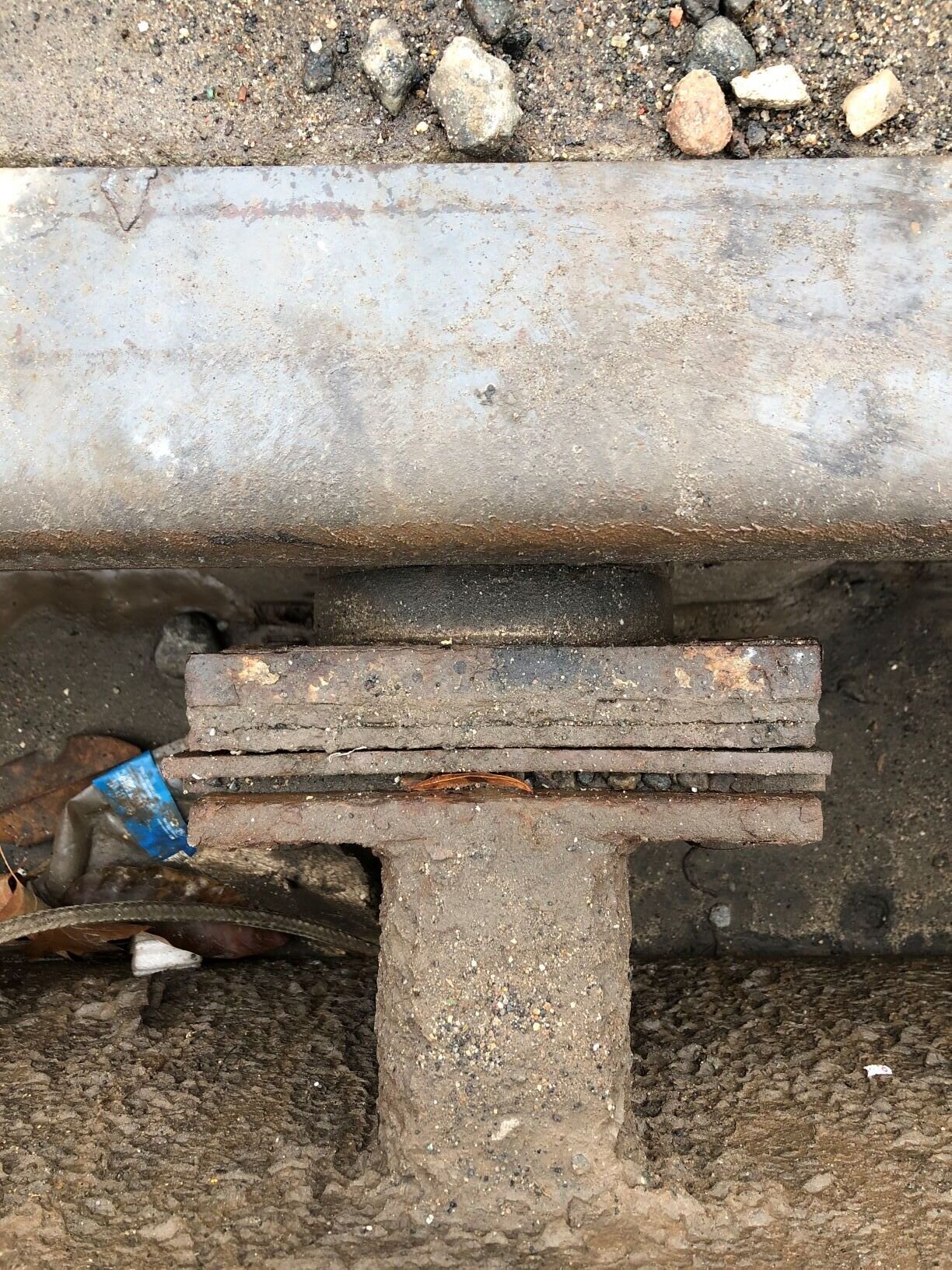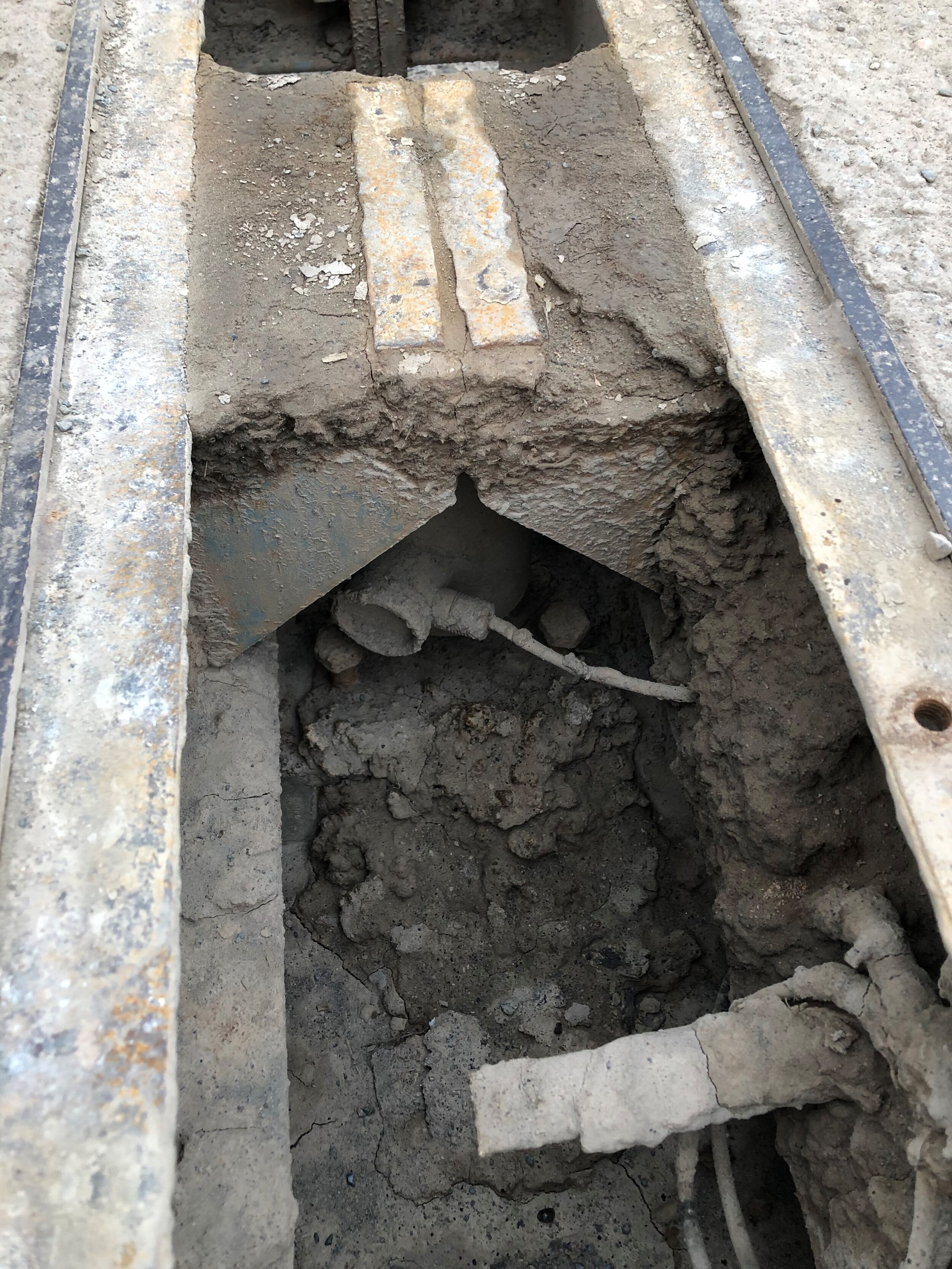Truck scales can be intimidating and frustrating for scale owners to diagnose when they experience issues. However, a truck scale is just the same as any other scale. The scale deck sits on top of load cells – usually eight or ten. The load cells are what read the weight traveling across the scale. So why is my truck scale weighing light? Below are three causes of an inaccurate scale reading:
BUILD UP:
Build up is the dirt, debris, and rocks that pile up under or around the truck scale. If the scale’s steel deck is not able to freely sit down onto the load cells, the scale will weigh light. Scale manufacturers have takin tis common problem into consideration and have designed these scales to be easily cleaned with a power washer. This also makes scale calibration simpler. If you have analog or electronic load cells then just be sure to check for any buildup. The first thing technicians will look for when they arrive on site is for build up around and underneath the truck scale. A good inspection of the full truck scale will enable you to quickly determine if build up if causing weighment issues. To avoid this problem, it is advised that you have your scale pressure washed by a scale technician on a frequency that meets your environmental needs.
BINDING OR MECHANICAL ISSUES:
Binding is referred to as a mechanical problem causing the scale to not float freely. Metal rock guards around the scale deck can break free and bind with pit walls. Other mechanical parts can also cause binding. If you cannot find a binding issue, contact your scale company as they may have certain areas for you to check based on the make and model of your scale. A common problem is coping breaking free from pit walls and approaches. A common fix is to weld the coping back into place. Contact your scale company for suggestions on how to check for and reduce binding issues. The structural integrity of your scale will greatly affect your weighing accuracy. Structural integrity is most seen when you start to experience teetering issues with the scale deck. These issues are hard to diagnose and even harder to fix. A thorough diagnose will be needed to determine if repairs are possible.
ELECTRONIC FAILURE:
Most truck scales made today are electronic. As with any man-made product, load cells and summing cards do fail. Even without complete failure showing error codes on the scale indicator, a load cell and/or summing card can slowly fail. A technician will need to diagnose your truck scale for failure in electronic parts. One quick thing a scale owner can check is the voltage supplied to the scale indicator. Alos check your remote display or scoreboard to ensure it is connected properly. Ensure that the power is stable and not dropping when other machines are turned on. Also, check for grounding issues with the power supply that could lead to power draws and back-feeds on voltage. These draws and back-feeds will affect voltage going to and coming back from the scale as scales are calibrated based on voltage and millivolts. For further in-depth diagnosis, contact your local scale company.
Closing Words
At American Scale we strive to bring you informed and useful content on all things scale related. Be sure to check out our legal for trade truck scale system articles about truck scale foundation or how much do truck scales cost. We even have a guide to warranties. We also have articles on scale accessories, common problems to prolong your scales lifespan, weighing applications as well as what scale indicator works best with your junction box. To learn more about bench scales, it would be good to check out our other articles such as “Bench Scale Basics'' and “How Much Does A Bench Scale Cost?”. These articles will help with the basics of bench scale ownership.



